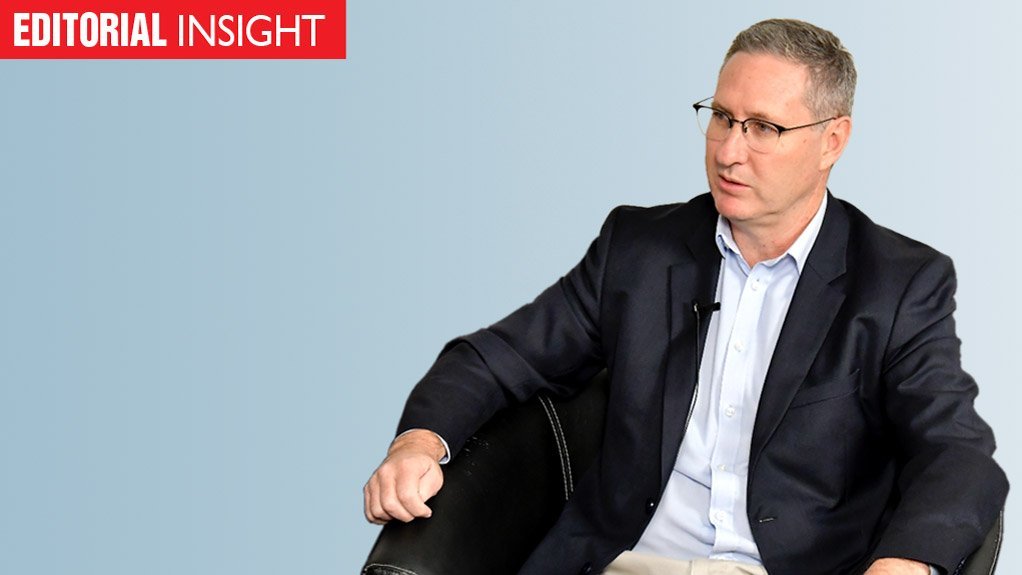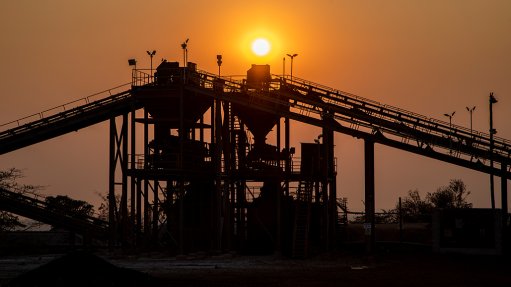Wake-up call
The European Union’s (EU’s) decision to proceed with the implementation of a carbon border adjustment mechanism (CBAM) has serious implications for South Africa and Africa. In terms of an agreement reached in December, the CBAM will be implemented later this year and will initially cover the carbon- intensive sectors of iron and steel, cement, fertilisers, aluminium, electricity and hydrogen.
A working paper produced for the Presidential Climate Commission notes that the EU imported, on average, $1.4-billion a year of products from sectors in South Africa covered by the CBAM, including the iron and steel sector, which employs some 28 000 people and is the domestic sector most at risk.
Likewise, Africa as a whole is poised to be negatively affected, with work done by the London School of Economics on behalf of the Africa Climate Foundation indicating that, at current carbon prices, the CBAM could reduce Africa’s exports to the EU by up to 5.7%, which would knock about 0.91%, or $16-billion, off the continent’s gross domestic product. Naturally, the precise impact would depend on the price of carbon and the final coverage of the products, as well as the phase-in rate and whether the EU eliminates free allowances for European producers under its emissions trading system.
What is clear, however, is that Africa is set to be disproportionately disadvantaged by the CBAM, because of the relative carbon intensity of its exports and the fact that a high proportion (about 26%) of its trade is with the EU. For this reason, the CBAM is likely to be challenged at the World Trade Organisation (WTO), where its legality will be questioned, alongside whether it will be effective in supporting developing countries to decarbonise, particularly in a context where it appears that the CBAM revenues will be captured in the EU itself. In other words, critics see it as part of a growing arsenal of protective measures designed to bolster the green- industry competitiveness of EU firms.
The legal route is, thus, not only inevitable but justifiable. It would be deeply problematic, however, if that were to be the only course of action, particularly given that the EU is not the only country looking at mechanisms to prevent so-called ‘carbon leakage’. In the longer-term it seems clear that carbon-intensive exports will be penalised in some form.
Therefore, South Africa should be addressing this risk not simply through adopting a defensive stance, but also through taking proactive action to address the root cause of the threat to its competitiveness, which is the current carbon intensity of the economy. In other words, the most effective way of addressing this risk sustainably is not at the WTO, but through accelerating rather than delaying South Africa’s transition to a low-carbon economy.
South African policymakers need to walk and chew gum. Attack the unjust elements of the CBAM by all means but not at the expense of taking decisive action to place the economy on a more sustainable growth and development pathway.
Article Enquiry
Email Article
Save Article
Feedback
To advertise email advertising@creamermedia.co.za or click here
Press Office
Announcements
What's On
Subscribe to improve your user experience...
Option 1 (equivalent of R125 a month):
Receive a weekly copy of Creamer Media's Engineering News & Mining Weekly magazine
(print copy for those in South Africa and e-magazine for those outside of South Africa)
Receive daily email newsletters
Access to full search results
Access archive of magazine back copies
Access to Projects in Progress
Access to ONE Research Report of your choice in PDF format
Option 2 (equivalent of R375 a month):
All benefits from Option 1
PLUS
Access to Creamer Media's Research Channel Africa for ALL Research Reports, in PDF format, on various industrial and mining sectors
including Electricity; Water; Energy Transition; Hydrogen; Roads, Rail and Ports; Coal; Gold; Platinum; Battery Metals; etc.
Already a subscriber?
Forgotten your password?
Receive weekly copy of Creamer Media's Engineering News & Mining Weekly magazine (print copy for those in South Africa and e-magazine for those outside of South Africa)
➕
Recieve daily email newsletters
➕
Access to full search results
➕
Access archive of magazine back copies
➕
Access to Projects in Progress
➕
Access to ONE Research Report of your choice in PDF format
RESEARCH CHANNEL AFRICA
R4500 (equivalent of R375 a month)
SUBSCRIBEAll benefits from Option 1
➕
Access to Creamer Media's Research Channel Africa for ALL Research Reports on various industrial and mining sectors, in PDF format, including on:
Electricity
➕
Water
➕
Energy Transition
➕
Hydrogen
➕
Roads, Rail and Ports
➕
Coal
➕
Gold
➕
Platinum
➕
Battery Metals
➕
etc.
Receive all benefits from Option 1 or Option 2 delivered to numerous people at your company
➕
Multiple User names and Passwords for simultaneous log-ins
➕
Intranet integration access to all in your organisation




















